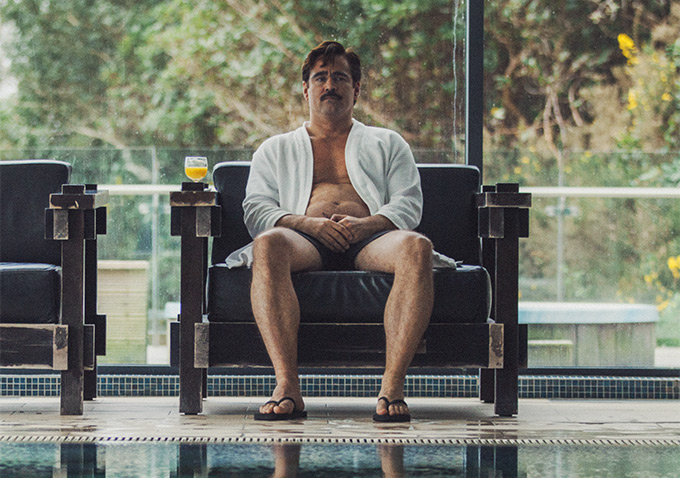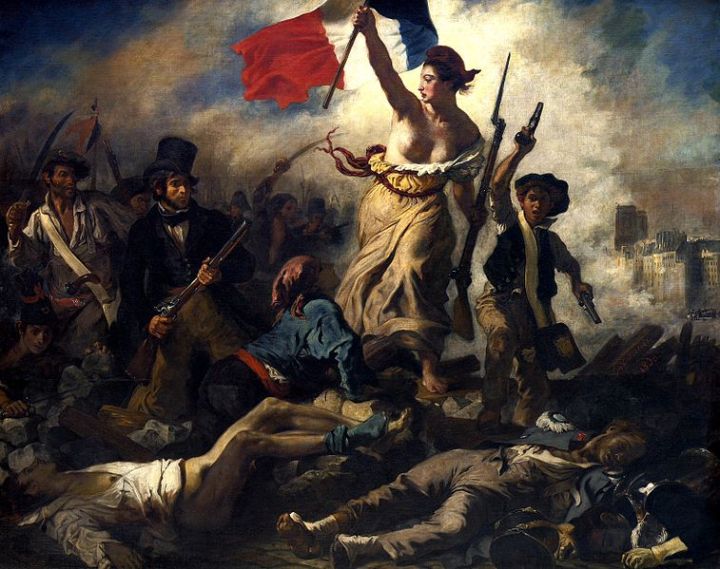 Last night I watched ‘The Lobster’, a movie directed by Yorgos Lanthimos about a dystopia where everyone has tohave a partner, if you fail to have a partner you are taken outside the community into a hotel where you have 45 days to find a new partner or else you are turned into an animal of your choice. Meanwhile there is a community of loners who have ran away from the system and created their own institution which forbids relationships on any level.
Last night I watched ‘The Lobster’, a movie directed by Yorgos Lanthimos about a dystopia where everyone has tohave a partner, if you fail to have a partner you are taken outside the community into a hotel where you have 45 days to find a new partner or else you are turned into an animal of your choice. Meanwhile there is a community of loners who have ran away from the system and created their own institution which forbids relationships on any level.
So we have two institutions (both interestingly run by women) one which imposes partnership (lets call it institution A) and another which forbids it (and this one Institution B). They are both a part of a larger institution which created this categorized system where one falls from one category to the other, within an ‘either or’ scenario.
Not only is the idea of the ultimate importance of partnership hegemonized in institution A, within this institution one can find a wide range of categories that one can not escape, for example you can only be heterosexual or homosexual, and they deleted the category of Bisexual last summer. Much like the categories on Facebook where one has to fit a certain category of sexuality on their profile rather than just allowing sexual fluidity away from pre-fixed categories. On the other hand, this institution keeps on re-enforcing its concepts through daily shows that demonstrate the importance of partnership and the dangers of its absence, and through physical exercise like living a day with one hand only.
The docility of the characters is very well incorporated in the movie, especially in the main character (role by Collin Farrel)’s way of talking and reactions to every day life, its as if the charterer know that he is acting as a part of a larger institution in a covertly comic manner. Generally we can notice the docility in the other characters through their pre-fixed attitudes, outbursts of violence, unconscious dedication to the ideas of the institution for example: one loves another who has the same defining characteristic as them, since they are all docile bodies the only way to tell them apart is through such shallow traits, like we both suffer from frequent nose bleeds, we are both short sighted. this criterion is deeply innate in the people of this society so much that even the main characters who fail at first to fit within any of the two categories can not escape this notion of surface traits which determine how well suited you are to each other, in fact the main characters are not challenging the institution at all, they are simply two people functioning within an institution hoping to survive. Basing relationships on traits is much like dating applications such as tender, nowadays where one can chose a date based on measurable traits that one is reduced to.
In the movie, for the couple to further enrich their relationship, a vacation on an Island in Europe or somewhere exotic is recommended, or assigning a child to the couple so their arguments will cease. this portrait of a couple’s romantic vacation is so innate in our minds to a point where they are going to the dream vacation just to draw that consumer driven portrait. and objectify themselves through social media.
There is a significance to the fact that everyone is always assigned the same clothes, as if the director wants to insure that the audience have a tangible evidence demonstrating how institution hegemonize few modes of personalities till we are pretty much very similar.
Another subject that is noticeable in the movie is the christian family framework, where the family is considered the heart of the society, and any other structure is out of question.
Institution B is in fact an effect of institution A , interestingly, you can pinpoint how both institutions are actually two sides of the same coin. for example in institution B one can not dance with a partner but puts her/his own headphone and dances whenever there is a celebration, even if you danced with a partner in institution A you would feel equally disconnected, hence the effect of the first institution is producing the same docility. This disconnection is shown very clearly when the power relations between the two institutions start to change, and the loners of institution B challenge the husband of the hotel owner ( technically the leader of Institution A) to shoot her in return for his life, and he does pull the trigger however the gun was empty. So institution B demonstrates the failure of institution A, and yet at this moment of discourse it reinforces the same model of institutionalization.





